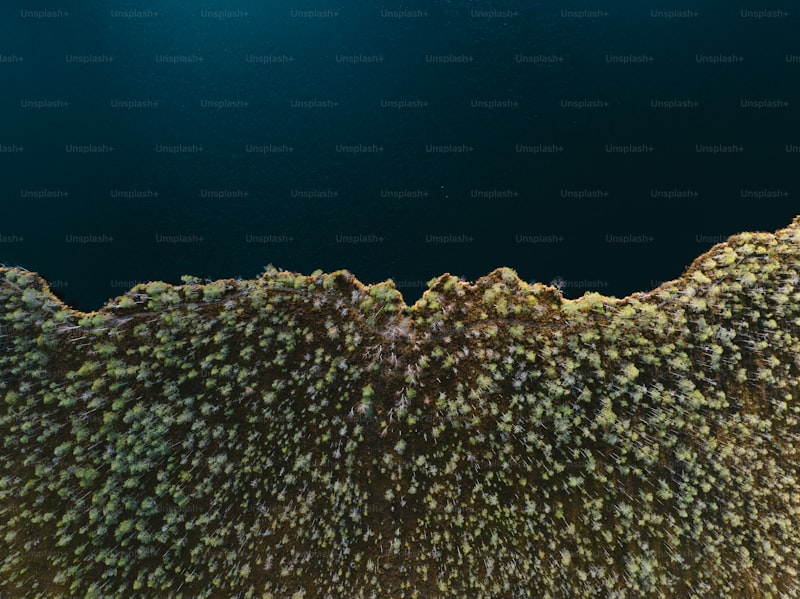Imagine walking through a dense forest where every leaf, every twig, every patch of soil filters and purifies the air you breathe. Marine sponges do just that in the ocean. They are living water filters, constantly sieving seawater to extract microscopic particles of food and impurities. This process not only sustains the sponges themselves but also cleanses vast amounts of seawater, making it healthier for other marine life.
What makes marine sponges exceptional is their efficiency. Despite their simple structure, they are highly effective at trapping bacteria, plankton, and even heavy metals. Their porous bodies act like intricate nets, capturing particles as water flows through them. In a way, they’re like the kidneys of the ocean, ensuring that the water remains clear and conducive to life.
But their importance extends beyond water filtration. Scientists are increasingly discovering that marine sponges harbor compounds with potential pharmaceutical benefits. These compounds, some of which are unique to sponges, show promise in treating diseases such as cancer and arthritis. In essence, marine sponges not only contribute to ecological balance but also hold keys to medical advancements.
Despite their critical role, marine sponges face threats from human activities like pollution and overfishing. As these threats loom larger, understanding and protecting these unsung heroes of the sea becomes ever more urgent. By safeguarding marine sponge habitats, we not only preserve biodiversity but also maintain the health of our oceans.
Intriguingly, each species of marine sponge has its own specialized role, contributing to the rich tapestry of life underwater. From tropical coral reefs to deep-sea vents, they adapt and thrive in diverse environments, embodying resilience in the face of environmental challenges. Next time you snorkel or dive, take a moment to appreciate these silent yet significant contributors to the marine world—nature’s filters, tirelessly working beneath the waves.
Underwater Guardians: How Marine Sponges Are Cleaning Our Oceans
Imagine a sponge you use at home but much, much bigger and way more effective. Marine sponges are filter feeders, meaning they draw in water, filter out tiny particles, and then release the cleaned water back into the ocean. Think of them as nature’s water purifiers. Each sponge can process thousands of liters of water a day. That’s a lot of cleaning!
These sponges work tirelessly to remove bacteria, plankton, and other microscopic debris from the water. By filtering out these unwanted elements, they help maintain the ocean’s health and clarity. It’s like having a gigantic natural filtration system built right into the ocean’s ecosystem.

What’s even more amazing is how sponges contribute to the marine food web. The particles they filter out are often rich in nutrients, which can then be used by other marine organisms. This process supports the entire ecosystem, from the smallest plankton to the largest whales.

Marine sponges also play a crucial role in controlling harmful algal blooms. By filtering out excess nutrients, they help prevent these blooms from spiraling out of control, which can otherwise lead to dead zones where most marine life can’t survive.
Nature’s Silent Heroes: The Unsung Role of Marine Sponges in Ocean Health
Have you ever wondered about the secret champions quietly contributing to the health of our oceans? Enter marine sponges, the unsung heroes of the underwater world. These fascinating creatures play a crucial role in maintaining the delicate balance of ocean ecosystems, yet their importance often goes unnoticed.
Marine sponges are not your typical creatures. They may look like simple organisms, resembling colorful blobs attached to rocks or coral reefs, but beneath their unassuming appearance lies a powerhouse of ecological significance. These organisms are filter feeders, constantly pumping large volumes of water through their porous bodies. In doing so, they efficiently remove bacteria, plankton, and organic particles from the water column, acting as natural purifiers of the ocean.
Imagine marine sponges as nature’s own filtration systems, tirelessly working to clean the oceans on a microscopic scale. Just one sponge can filter many liters of seawater daily, making a substantial impact on water quality. This filtration process not only benefits the sponge itself by providing essential nutrients but also contributes to the overall health of coral reefs and other marine life by maintaining water clarity and purity.
But that’s not all; marine sponges are also a rich source of chemical compounds that hold promise for medical and pharmaceutical applications. Scientists are increasingly exploring these compounds for their potential to develop new drugs, antibiotics, and even skincare products. From anti-inflammatory agents to compounds with antiviral properties, marine sponges are proving to be a treasure trove of bioactive molecules.
In the face of environmental challenges such as pollution and climate change, the role of marine sponges becomes even more critical. They act as indicators of ocean health, responding sensitively to changes in their surroundings. Their decline could signal broader issues affecting marine ecosystems, making their conservation essential for the sustainability of ocean biodiversity.
Next time you snorkel or dive into the ocean, take a moment to appreciate these silent heroes. Marine sponges may not boast the charisma of dolphins or the majesty of whales, but their contribution to ocean health is nothing short of remarkable. As we strive to protect our oceans, let’s remember to value and conserve these extraordinary creatures that quietly safeguard the underwater world.
Beyond Beauty: The Scientific Marvel of Marine Sponges as Environmental Filters
Unlike their more glamorous coral neighbors, marine sponges are simple organisms known as filter feeders. They thrive by pumping large volumes of water through their porous bodies, trapping microscopic particles of food suspended in the seawater. This filtering process not only sustains the sponge but also cleanses the surrounding water of organic debris and bacteria, effectively acting as natural purifiers of the marine environment.
Beyond their filtering capabilities, marine sponges contribute significantly to biodiversity and ecosystem health. They provide habitats and refuge for various marine organisms, from small invertebrates to juvenile fish, supporting a complex web of life underwater. Their presence fosters ecological balance by promoting nutrient cycling and sediment stabilization on the seabed.
Scientists are increasingly fascinated by the biochemical potential of marine sponges. These organisms produce a diverse array of bioactive compounds, many of which have promising pharmaceutical applications. From potential treatments for cancer to antibiotics and antiviral agents, the compounds extracted from marine sponges offer a treasure trove of possibilities for medical research and drug discovery.
In the face of environmental challenges such as pollution and climate change, marine sponges stand out as resilient indicators of ecosystem health. Their sensitivity to changes in water quality and temperature makes them valuable sentinels for monitoring marine ecosystem dynamics and the impacts of human activities on the oceans.
Appreciating marine sponges goes beyond their aesthetic appeal. They embody a natural wonder of science and sustainability, showcasing how even the simplest organisms can play a vital role in maintaining the health and balance of our oceans. Understanding and protecting these unsung heroes of the sea is crucial for preserving the beauty and biodiversity of our marine environments for future generations.
From Sea Beds to Sustainability: Harnessing Marine Sponges for Cleaner Waters
Imagine a bustling city where each citizen has a unique job crucial to the city’s functioning. Marine sponges are akin to these specialized citizens, diligently filtering seawater to keep it clean and clear. They act as natural purifiers, absorbing pollutants and particles from the water column. This cleansing ability not only benefits their immediate surroundings but also supports the entire marine ecosystem by maintaining water quality.
In recent years, scientists and environmentalists alike have turned their attention to harnessing the potential of marine sponges for sustainability efforts. Their natural filtration mechanisms offer a promising solution to combatting water pollution in coastal areas and beyond. By integrating these organisms into sustainable practices, such as aquaculture or eco-friendly filtration systems, we can mitigate the impacts of human activity on marine environments.
But how exactly do marine sponges achieve this remarkable feat? Their porous bodies create intricate networks that trap debris and absorb dissolved organic matter, effectively acting as living water filters. This process not only improves water clarity but also enhances biodiversity by creating cleaner habitats for marine life to thrive.
As we look to the future of environmental stewardship, the role of marine sponges in maintaining cleaner waters becomes increasingly significant. By understanding and harnessing their natural abilities, we can pave the way for more sustainable practices that benefit both marine ecosystems and human communities alike. These unassuming creatures remind us that sometimes, the smallest organisms hold the key to big environmental solutions.
Frequently Asked Questions
What role do marine sponges play in marine ecosystems?
Marine sponges play a crucial role in marine ecosystems by filtering large volumes of seawater, contributing to nutrient cycling, and providing habitats for diverse marine species. They help maintain water quality and support biodiversity, making them significant components of coastal and reef environments.
Why are marine sponges referred to as “nature’s filters?
Discover why marine sponges are often called “nature’s filters” in this concise FAQ description. Marine sponges play a crucial role in filtering seawater, removing particles and toxins, which helps maintain water clarity and purity. Their intricate structures and specialized cells effectively trap and process contaminants, making them invaluable in marine ecosystems for maintaining water quality.
How are marine sponges beneficial to humans and the environment?
Learn how marine sponges benefit both humans and the environment, providing essential ecosystem services such as water filtration, habitat for marine life, and potential pharmaceutical discoveries.
How do marine sponges contribute to ocean health?
Learn how marine sponges contribute to ocean health by filtering water, cycling nutrients, and providing habitat for diverse marine life. Discover their crucial role in maintaining ecological balance and supporting biodiversity.
What are marine sponges and how do they function as filters?
Learn about marine sponges, natural filter feeders crucial for ocean ecosystems. Discover how they efficiently filter seawater, trapping particles and nutrients essential for marine life.


